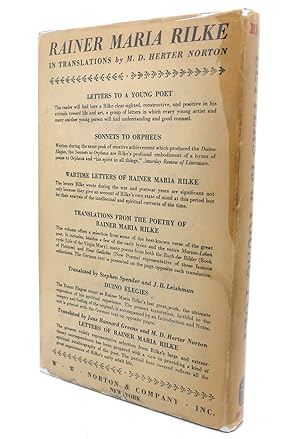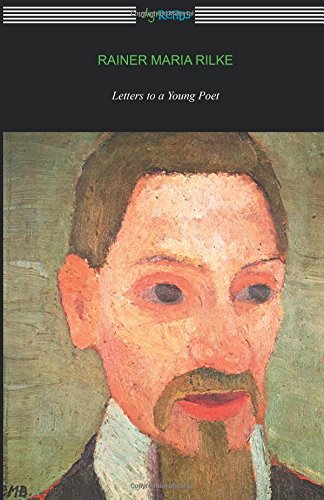


Posthumously published in German in 1929, these letters of great poetic insight come alive in a new edition: Letters to a Young Poet: A New Translation and Commentary (Shambhala 2021). In ten letters, Rilke not only shared personal reflections on the vocation of writing but also offered uncommon wisdom on a life, touching topics such as gender, solitude, longing and romantic love. Rilke saw himself in Kappus, and so they’re written from Rilke to Rilke-both to his past and his present. The letters aren’t really letters, they’re diaries.

1902 portrait of Rilke by his brother-in-law, Helmuth Westhoff And so began a ten-letter correspondence lasting from 1902–1908. Rilke got lots of letters from aspiring artists, but Kappus’s touched him, for he had spent the worst five years of his young life forced by his parents into the same military school. Kappus sent Rilke some poems and asked him for advice about becoming a writer. Rilke was 27-still a young artist with his best work ahead of him-when he got a letter from a 19-year old military school student named Franz Kappus. These letters, which explore many of the themes that later emerged in Rilke's best works, remain a captivating source of insights into the artistic identity and process.The preeminent Bohemian-Austrian poet, Rainer Maria Rilke (1875-1926) left a rich legacy of poetry that contains some of the most moving and astute observations on the human condition – love, longing, solitude, creativity and God. The poet offered his young correspondent further advice on developing a rich inner life as well as guidance on broader philosophical and existential issues. This seemingly dismissive letter proved to be the first of ten, written during a six-year period that coincided with an important stage in Rilke's artistic development.

Rilke declined to offer a critique, instead encouraging the student to rely upon his own inner judgment: "Nobody can advise and help you, nobody. A 19-year-old student sent Rilke some of his verses, seeking an opinion of their worth. Born in Prague when it was part of the Austro-Hungarian empire and recognized today as a master of verse, poet Rainer Maria Rilke was considerably less well known in 1902 when he received a heartfelt letter from an aspiring poet.


 0 kommentar(er)
0 kommentar(er)
